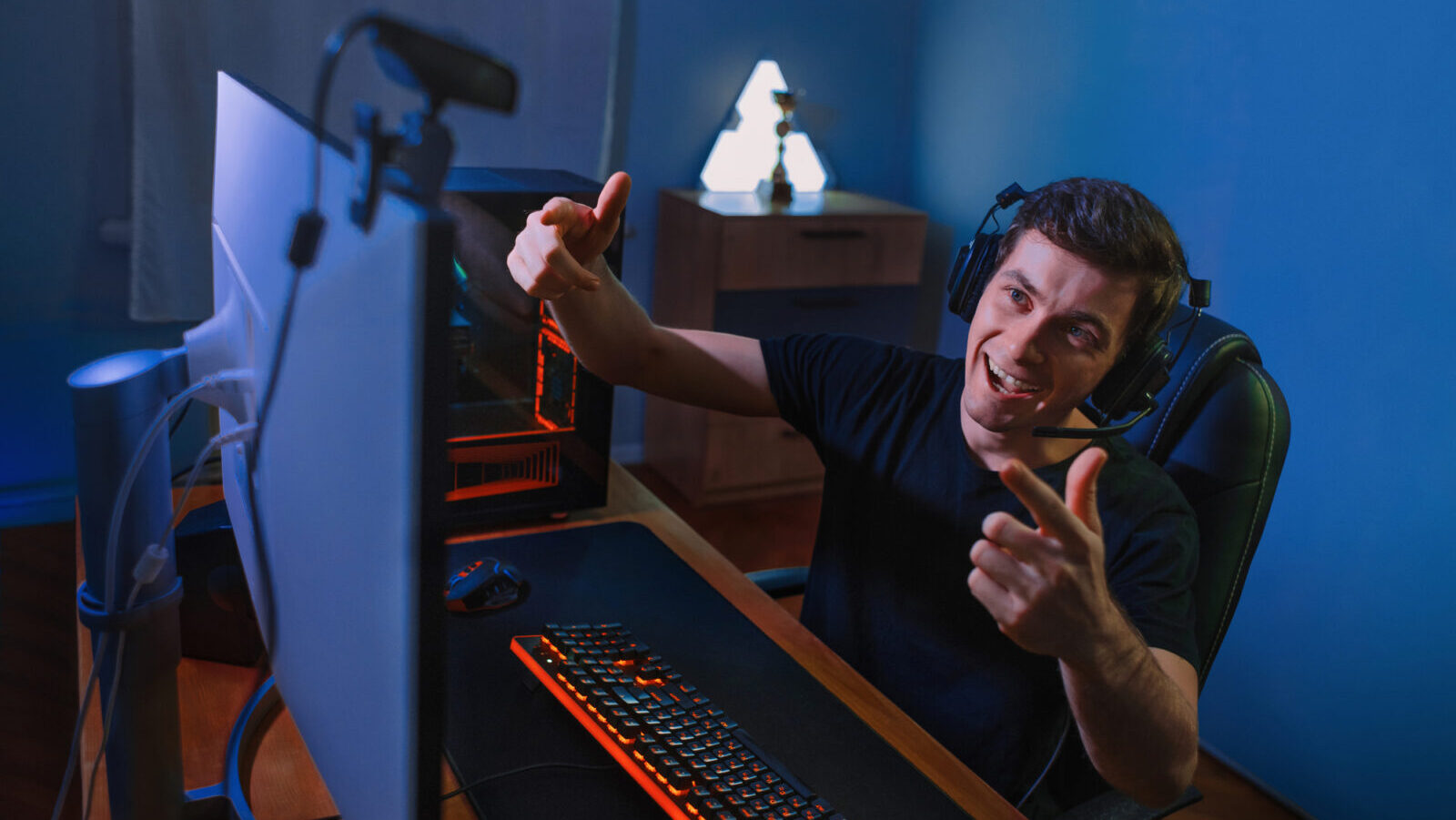‘Influencers’ Provide Some Of The Most Effective Marketing Casinos Could Ask For
Operators want to work with influencers to tap into the sense of community they create as they showcase the product.
5 min

Online casino play is setting records regularly in states where it’s legal, and the age demographics behind that are worth exploring.
This is not specific to gaming, but research from Capital One suggests Millennials prefer online shopping to retail shopping (by a margin of 5.56 percentage points), with Gen Z the next most likely group to shop online. Gen X and Baby Boomers, on the other hand, are, according to the research, much more likely to shop in-store.
The takeaway from those numbers is that if there is a general demographic for iGaming operators to target, it is the younger folks (as long as they’re of legal gambling age). How do advertisers market to these generations?
One often effective option is to sponsor an influencer.
The celebrity culture of yesteryear has morphed into what social scientists call “influencer culture.” That’s right, the “be like me,” “this is how s*** gets done” types of people like Grant Cardone, Logan Paul, Kim Kardashian, and Yung Grizzy. The fact is, influencers make Grade-A shills.
That said, being an influencer does not always mean that you’re a grifter or a shill. There are a lot of sincere influencers who make an honest living by talking about the things they know and love.
Operators and streamers
The lore of internet culture is long and, in some cases, tiresome, but when it comes to casinos sponsoring influencers, the movement started with streamers — specifically, slot streamers.
Most sources attribute “gray market” and crypto casinos like Stake with creating partnerships with streamers. Since crypto was and still is loosely regulated, Stake was able to market its products and services in a way most casinos could not at the time. Some of the bigger names to make deals with Stake were xQc, SteveWillDoIt, Adin Ross, and Trainwreck. Stake even partnered at one time with the rapper Drake.
Many of these influencers would stream themselves on Twitch, playing casino games online using Stake. Throughout the stream, the influencers would promote their affiliate links, viewers would sign up, and the streamer would get a cut, plus whatever they were making upfront.
After tons of outcry from the online community, Twitch decided it was not comfortable hosting gambling content and, in 2022, banned slots and roulette streams. Following Twitch’s big policy move, casino streamers slowly migrated to a new streaming platform called Kick.
Regulated operators get in the game
Operators working in regulated markets have to tread a more delicate line, including when dealing with influencers. Although there are more complexities, regulated casinos are still very willing to do business with streamers.
At a panel during last week’s SBC Digital Innovation Day, Graciella Anthony, the head of Entain’s live casino, said she thinks casinos, both in Europe and North America, will look to incentivize streamers to play what iGaming providers call “game shows.”
These game shows could make it past the Twitch ciphers, or streamers could share themselves playing these products on social media apps like TikTok.
According to Anthony, operators like Entain really want to work with influencers to tap into the sense of community they create through their online brands. Not only can they showcase the product, but they can also share the experience of winning.
Of course, most of these streamers who play video games will have pre-teen demographics. In the United States, there have been major ethical and moral concerns about promoting gambling products through influencers to such young audiences. Regulated operators certainly are more motivated to work with influencers who have audiences of legal gambling age. But the line of demarcation is not always clear.
Anthony also noted influencers should teach their viewers to gamble responsibly and promote services for those with gambling addictions.
An influencer’s perspective
When casino influencer Brian Christopher, also president and CEO of BCSlots.com, went to school in Canada to be an actor, he had no intentions of “influencing.” He moved from his residence in Canada to Los Angeles to be in the epicenter of the acting industry.
But after a trip to Vegas in the mid-2010s, where he filmed himself playing slots in a casino, his videos started to gain some traction. He decided to upload all his gambling exploits from that trip to YouTube, and internet fame quickly followed.
After that, Christopher, who now has 671,000 YouTube subscribers, decided to dedicate himself to the grind. “In the beginning,” he told Casino Reports, “I would travel to Vegas for two to three days and film nonstop. Then I’d go back to LA to edit them, create thumbnails, and post.
“I spent most of my time filming and editing the videos but focused my energy on figuring out what the community wanted from me. The channel never had anything to do with me; it was created for their enjoyment. As time went on, I would later create a fan club just for them as well.”
When Christopher first started out, the idea of “casino influencing” was rare and niche. “It took quite some time to get casinos on board,” he reflected. “I put a ton of time and energy into convincing them it was a good idea to let a guy on their floors with a camera. It was a slow process, but I was patient and eventually got a few to sponsor me.
“As you can imagine, creating gambling videos is quite costly, so being compensated in any way to help recoup my losses was a help — be that with free hotel rooms, food, or monetarily.”
Christopher found that he had to draw a line somewhere when it came to sponsorships.
“Just like a promotion for any company that you’d see on a commercial or in an ad, they wanted me to promote the casino and everything about it. I refused, however, to just say whatever they wanted.”
Being genuine was Christopher’s main intention. “Anything I said had to be my own thoughts and words; it had to be authentic,” he said. “So, if they wanted me to promote the steakhouse, for example, I’d honestly talk about what I ate and what I thought about it.
“But the majority of my content is gambling, and that’s what the audience wants to see.”
The elephant in the room
Christopher does not like what some influencers are doing in the space.
“I do know that many of them are not open about their sponsorships, which is quite misleading to their viewers,” he said. “I also know that some of them get money to gamble with, which is against the rules in most places [and] against my personal ethics, regardless.
“Being an influencer is not an easy job, and there is no rule book. So, I don’t necessarily hold it against them, but they need to do their own research, or they could get in serious trouble with the law.
“I choose, for example, not to partner with crypto casinos due to the fact that it’s unregulated. Many streamers will make videos for them and play with millions of dollars that are not their own money. That, to me, is the opposite of an influencer. You’re not authentic, and you’re not relatable. To me, that should not be allowed.”
Christopher does see the upside, though, to having more and more influencers in the gaming space.
“When I first started making these videos, there were just a handful of people doing this,” Christopher said. “Today, there are well over a thousand of them! I say, the more the merrier! The more people who do this, the more people will discover all of our channels. There are probably tens if not hundreds of thousands of musicians out there who made a career out of their talent, and there’s no reason we can’t do the same here. There’s plenty of room for all of us.”






